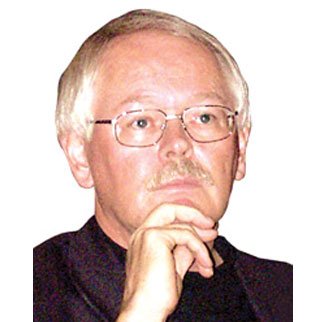
Fr. Ron Rolheiser
Ronald Rolheiser, a Roman Catholic priest and member of the Missionary Oblates of Mary Immaculate, is president of the Oblate School of Theology in San Antonio, Texas.
He is a community-builder, lecturer and writer. His books are popular throughout the English-speaking world and his weekly column is carried by more than seventy newspapers worldwide.
Fr. Rolheiser can be reached at his website, www.ronrolheiser.com.
Our deeper way of praying
When we no longer know how to pray, the Spirit, in groans too deep for words, prays through us.
We face our Maker each day
Some day you will have to face your Maker! We’ve all heard that phrase. The hour will come when we will stand alone before God with no place to hide, no room to rationalize and no excuses to offer for our weaknesses and sin. We will stand in a searing light, naked and exposed, and all we ever did, good and bad, will stand with us in that light. That prospect, however vaguely felt, makes for a dark corner in every person’s mind.
The real challenge in creativity
There are three kinds of performers. The first, while singing a song or doing a dance, are making love to themselves. The second, while performing, are making love to the audience. The third, while on stage, are making love to the song, to the dance, to the drama itself.
The struggle with sexual energy
The Church has always struggled with sex, but so has everyone else. There aren’t any cultures, religious or secular, pre-modern or modern, post-modern or post-religious, that exhibit a truly healthy sexual ethos. Every church and every culture struggles with integrating sexual energy, if not in its creed about sex, at least in the living out of that creed.
No need to replace religious coinage
No one, be that an individual or an institution, controls access to God. Jesus makes this abundantly clear.
Our pagan resistance to the other world
Sometimes while presiding at the Eucharist or preaching, I scan the faces in the front pews. What do they reveal? A few are eager, attentive, focused on what’s happening, but a goodly number of faces, particularly among the young, speak of boredom, of dram duty and of a resignation that says: I have to be in the church just now, though I wish I was elsewhere.
Holiness, wholeness and depression
External appearances can easily fool us, and often do. That’s true in every area of human life, and religion is no exception.
The imperative for wholeness inside Christ
For more than a thousand years, Christians have not had the joy of being one family around Christ. Although there were already tensions within the earliest Christian communities, it was not until the year 1054 that there was a formal split so as to, in effect, establish two formal Christian communities, the Orthodox Church and the Catholic Church in the West. Then, with the Protestant Reformation in the 16th century, there was a further split within the Western Church and Christianity fragmented still further. Today there are more than a hundred Christian denominations, many of them, sadly, not on friendly terms with each other.
The danger of defining ourselves
Given the speed and change in our world today, the oceans of information being given us by the new technologies, the speed with which knowledge now passes through our lives, the increasing specialization and fragmentation inside higher education and the ever-increasing complexity of our lives, you occasionally hear someone say, usually just after offering an opinion on something: But what do I know anyway? Good question: What do we know anyway?
Never does God call us to violence
In his deeply insightful book Violence Unveiled, Gil Bailie takes us through a remarkable section of the diaries of Captain James Cook, the famed British scientist and explorer. Visiting Tahiti in 1777, Cook was taken one day by a local tribal chief to witness a ritual where a man was sacrificed as an offering to the god, Eatooa. The man was being sacrificed in hope that this particular god would give the tribe some assistance in an upcoming war. Cook, though friendly to the local peoples, could not conceal his detestation for what he considered both a barbaric and superstitious act. In a conversation with the chief afterwards, Cook told him that in England they would hang a man for doing that.

